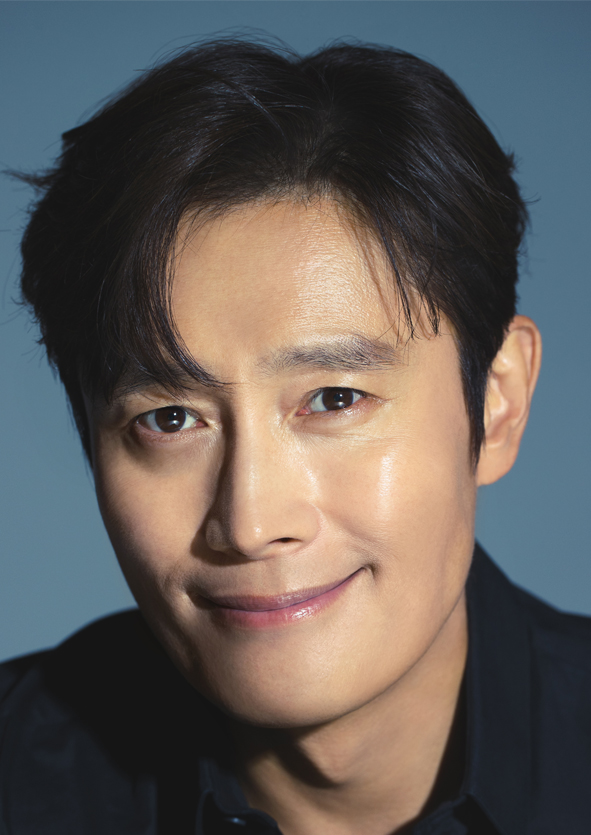Lee Byung-hun

Profession:
Actor
Gender:
Man


Profession:
Actor
Gender:
Man
After some roles in television and film productions, he participated in "Joint Security Area" (2000) directed by Park Chan-wook. He then stands out as the protagonist of films of great success with critics and audiences such as "Bungee Jumping of Their Own" (2001). His starring role in Kim Jee-woon's "A Bittersweet Life" (2005) attracted the interest of Hollywood where he debuted with "G.I. Joe: The Rise of Cobra" which was followed by numerous participations in blockbuster big-budget action movies such as "G.I. Joe 2: Retaliation", "Red 2" and "The Magnificent Seven". In the same period he starred in a series of successful auteur films such as "I Saw the Devil" (2010), the result of the third collaboration with Kim Jee-woon, the historical mise-en-scène "Masquerade" (2012) and the political thriller "Inside Men". In 2018 he starred in the Netflix series "Mr. Sunshine" set in Korea in the early twentieth century. This year, "Concrete Utopia" was one of the most watched films in Korea. He is currently engaged in the role of the Frontman in the second season of the Netflix series "Squid Game".
Cinema has always been a part of Lee Byung-hun's life. It is a passion that is passed on to him by his father who often spent his free time at the cinema with him, to watch his beloved American western films. It was Lee himself who recounted it during a recent speech at Stanford University in a panel on the future of Hallyu: "Korean movie theaters in 1974 were very different from those of today: you could smoke, you sold roasted squid and if the children had to pee they could pee in the theater. Smoke, squid and urine – imagine the smell. Despite this, I miss that atmosphere terribly." It is with the spirit of a cinephile that he is preparing to take the first auditions, without neglecting his studies and obtaining a degree in French literature. Small roles in television productions and, after a few years, also in the cinema. On the eve of the great opportunity provided by his participation in Joint Security Area (2000) directed by Park Chan-wook, which unexpectedly became a great commercial success as well as critically, Lee Byung-hun had made a name for himself in the romantic comedy The Harmonium in My Memory (1999) alongside a very young Jeon Do-yeon. His career continued, in the early 2000s, with roles, increasingly as a protagonist, in sentimental films with a constant of painful introspectiveness such as Bungee Jumping of Their Own (2001) in which he is a young high school teacher who discovers himself attracted to one of his students.
In 2005 the meeting with director Kim Jee-woon marks not only the beginning of a long and fruitful collaboration, but also a turning point in Lee's career. The release of A Bittersweet Life (2005) presents the seductive image of a new Asian star with the languidly melancholic charm of Alain Delon and the physical prowess of Bruce Lee. The film was presented out of competition at the Cannes Film Festival and it was there that he made his first contact with an agent who offered him a job in the United States. A few more years would pass, and another film with Kim Jee-woon directing him in the kimchi-western The Good, the Bad, the Weird (2008) also presented out of competition at the Cannes Film Festival, before debuting in a Hollywood action movie such as "G.I. Joe: The Rise of Cobra". A period of intense work began in Lee Byung-hun's career. Far from focusing solely on his presence in the USA, where in 2012 he became one of the first Korean actors to leave his mark on the Hollywood Walk of Fame, the interpreter alternates between refined auteur films in his homeland such as the horror I Saw the Devil (2010) (the result of his third collaboration with Kim Jee-woon) and the sumptuous historical mise-en-scène Masquerade (2012), in which he plays the dual role of monarch Gwanghaegun and his doppelganger, in the adrenaline-pumping Hollywood films GiJoe 2: Retaliation (2013) and Red 2 (2013) alongside Bruce Willis, Helen Mirren, John Malkovich, and Anthony Hopkins.
In 2015 he took on a new role as that of the criminal with the mutilated hand Ahn in Inside Men: Lee had the opportunity to experiment with a different approach in which, putting aside beauty and physical prowess, he gave life to a character with salacious language and grotesque manners. The following year he fulfilled his dream, cultivated in the afternoons at the cinema with his father, taking part with Denzel Washington, Chris Pratt and Ethan Hawke in the American Western. The Magnificent Seven (2016). Directed by Antoine Fuqua, it is the sixth film shot in the United States by Lee Byung-hun who, also in 2016, is the first Korean actor to appear among the presenters of the Academy Awards. 2018 is the year of a further consecration as the protagonist of the Netflix series Mr Sunshine (2018) set in Korea in the early twentieth century. Naval officer Eugene Choi became one of the most beloved characters in Korean television productions, and Lee Byung-hun's popularity reached a global reach. This year's "Concrete Utopia," where he again amazed audiences by impersonating an ordinary man who turns into an unpredictable villain, was one of the most watched films in theaters in Korea. Lee Byung-hun is currently engaged in the role of the Frontman in the second season of the Netflix series Squid Game.